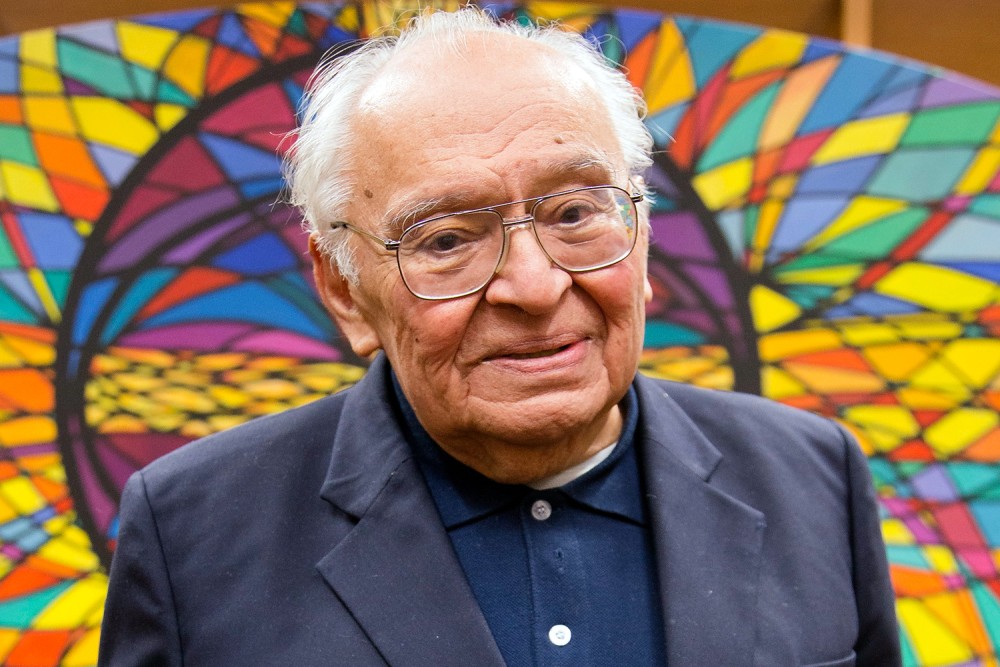Gustavo Gutiérrez accompanied God’s suffering people
The father of liberation theology endured much criticism, but he lived to see his groundbreaking work transform the church.

Theologian Gustavo Gutiérrez, 1928–2024 (AP Photo / Domenico Stinelli)
I still remember my first encounter with Gustavo Gutiérrez, the Peruvian liberation theologian and Dominican priest who died October 22. It was a mild winter in the town of Chaclacayo, 20 miles away from Lima. Gustavo and his colleagues from the Las Casas Institute and the Catholic University of Peru (PUCP) were running that year’s winter theology course. They had been doing this for decades, offering one course in the summer and one in the winter as a way to bring theological reflection to more people and contexts. The courses were remarkably famous in the 1970s and 1980s, with hundreds (sometimes thousands) of attendees from all over the world, including many well-known theologians, activists, and bishops.
The principal goal of these courses was—and still is—to build community and offer theological training to pastoral agents working in Peru, tending to the needs of the poor and the most vulnerable. “How can we tell the poor that God loves them?” Gustavo pointedly asks in On Job. As in all of his books, the question was not theoretical in origin. It came from experience. It originated in spaces of dialogue, like Gustavo’s theology courses, his parish work, and his organizing and consciousness-raising against structural oppression and political violence.
I remember it was winter because Gustavo was wearing a scarf (the same one with which he might appear when you Google him) and because we walked back and forth across a wide corridor for over an hour to keep ourselves warm. I was a college student at PUCP and had read some of his work in a theology class. My mind was blown. Until college, my understanding of faith was limited to church attendance, the sacraments, and prayer. A Theology of Liberation articulated a richer, more radical view: This book is an attempt at reflection, based on the gospel and the experiences of men and women committed to the process of liberation in the oppressed and exploited land of Latin America. It is a theological reflection born of the experience of shared efforts to abolish the current unjust situation and to build a different society, freer and more human.





